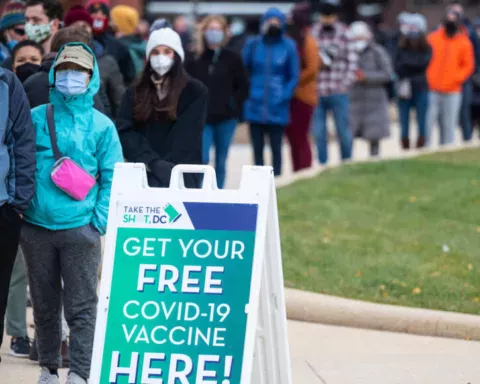Officially, 12 people have been infected at farms so far, mostly in northern Denmark, but the Danish health minister has admitted that up to half of the 783 human Covid cases in the region may be mink-related. This implies that the mutated virus is spreading from person to person, but how worried should we be?
Denmark has been removed from the UK’s coronavirus travel corridor list, following concerns over a mutated coronavirus strain.
The decision to remove the country from the travel corridors was taken following the news that a mutated form of coronavirus has emerged from Denmark’s mink farms, which could be spread to humans.
Transport secretary Grant Shapps said the move to remove Denmark was recommended by the government’s chief medical advisor, Professor Chris Whitty.
American mink (there is also a European species) were first imported to the UK in 1929 for commercial fur farming.
By 1956, many had escaped or been intentionally released into the wild and had begun to breed, and there were several instances of animal rights activists freeing large numbers of mink from fur farms in the 1990s.
Mink fur farms no longer exist in the UK (the industry was banned in 2000), yet mink remain one of the most controversial ‘invasive’ species in the UK, and numbers are thought to be on the rise.
This isn’t the first such outbreak among large mink populations to occur since the beginning of the Covid-19 outbreak, and there have been over a million cases of the virus in farmed mink in Europe.
In July, nearly 100,000 mink were culled at a farm in Spain, after over three quarters of the animals tested positive for coronavirus.
Aragón’s Minister of Agriculture, Joaquin Olona, told reporters that the decision to cull the mink was taken in order “to avoid the risk of human transmission.”
However, Mr Olona added that it was not clear if “transmission was possible from animals to humans and vice versa,” but said it was possible that an infected farm worker passed the coronavirus to the animals, or that the animals passed it to workers.
Even earlier in the year, the Dutch government said it had found two suspected cases of farm workers being infected by mink, with tens of thousands of mink recently culled in the country after coronavirus outbreaks were found.
Is it normal for viruses to mutate in this way?
Viruses continuously accrue mutations as they replicate and circulate in populations, but most are harmless. Only a handful will change a virus’s ability to infect people or cause more serious disease.
“Sars-CoV-2 is not mutating as fast as other related viruses, but because it has been circulating in the human population for some time now, there’s quite a large set of mutations that have emerged,” said Prof David Robertson, a virologist at the MRC-University of Glasgow Centre for Virus Research.
These do not appear to have made it any more dangerous so far, but if a virus jumps into a different species the pressure on it to adapt increases. So its transmission to mink and back to humans has prompted some legitimate concern particularly as some of the mutations are linked to a potential ability to evade the immune system.
What do we know about the coronavirus’s mutations?
Seven mutations have been identified so far, all of them in the “spike protein” on the virus’s surface, which it uses to gain entry to cells. One, called Y453F, was previously identified in an outbreak of Sars-CoV-2 on a mink farm in the Netherlands in April. It too was transmitted to humans, but it does not appear to have spread.
“I think it’s more about being aware that the virus can enter animal populations and exit back into humans,” said Julian Hiscox, the head of infection and global health at the University of Liverpool.
“The more genetic diversity in the virus there is, the more evolutionary room it’s got to play with. One of the reasons to try and keep the number of cases down as low as possible [in humans and animals], is to reduce the genetic diversity of the virus.”
Should we be worried?
There are reports that virus particles with one of these mutations are less well neutralised by antibodies in people who have had Covid-19. This could in theory render a vaccine less effective, particularly because many of the vaccines under development target the spike protein.
”The true implication of the changes in the spike protein have not yet been evaluated by the international scientific community and are thus unclear,” said Prof James Wood, the head of the department of veterinary medicine at the University of Cambridge. “It is too early to say that the change will cause either vaccines or immunity to fail.”
It is also relatively easy to tweak vaccines. This happens each year with the influenza vaccine.






